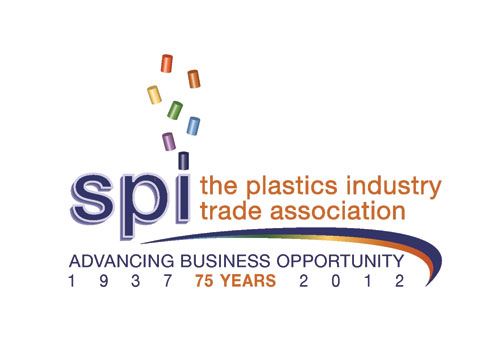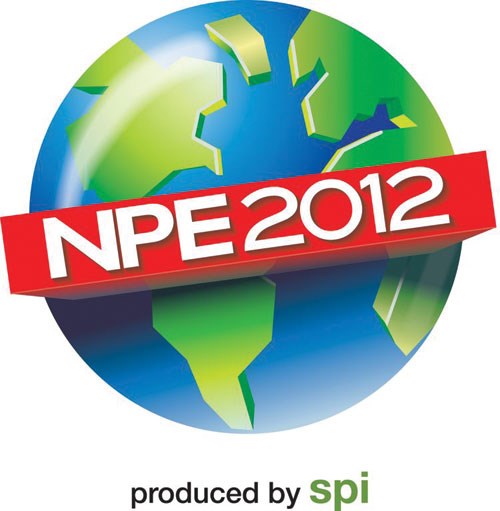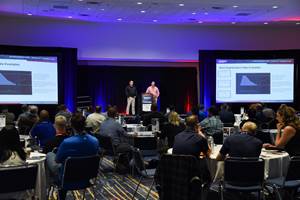SPI: Educating the Industry, Promoting Networking
Founded in 1937, the Society of the Plastics Industry (SPI) is the trade association representing the third largest manufacturing industry in the United States.
SPI's member companies represent the entire plastics industry supply chain—including processors, machinery and equipment manufacturers and raw materials suppliers. The SPI’s Equipment Council is the main point of contact for moldmakers and machinery manufacturers since the Moldmakers Division was absorbed into the Council in 2010.
Headquartered in Washington, D.C., SPI promotes business development via a suite of commercial services and trade shows, fosters the sustainable growth of plastics in the global marketplace, provides industry representation in the public policy arena and communicates the industry’s contributions to society and the benefits of its products.
According to Barry Eisenberg, SPI’s Senior Director of Communications and Public Outreach, the SPI consists of three industry councils (Equipment, Material Suppliers and Processors) that represent the foundation of the organization, and they have a direct pipeline to both the Board of Directors as well as to SPI’s tactical committees to ensure that the needs of today’s industry are being addressed. Special purpose groups (such as the SPI Bioplastics Council) and committees (such as the Occupational Health & Environmental Issues Committee) also tailor services for specific communities of members.
“These councils are able to flexibly set budgets according to the ebb and flow of a rapidly changing marketplace,” Eisenberg elaborates. Eisenberg adds that SPI’s Equipment Council is currently comprised of 408 member companies and staffed by three SPI employees, although it “enjoys the services of SPI’s government affairs, communications and marketing, and conference staff.”
The Equipment Council consists of the following committees and value-added services:
Machine Safety Standards: As an American National Standards Institute (ANSI) accredited standards developer, SPI, through its various machinery committees, works to develop new and update existing machinery safety standards impacting the plastics industry. Committees are: Blow Molding Safety Committee, Extrusion Safety Committee, Injection Molding Safety Committee and Robot Safety Committee.
Committee on Equipment Statistics (CES): SPI's CES is the only provider of timely and reliable plastics equipment statistics in the country, according to Eisenberg. SPI's CES produces quarterly machinery shipment statistics reports that serve as an important tool for examining and understanding the U.S. plastics machinery and equipment industry, as well as the economic trends that impact it. Monthly data is supplied by CES participating companies, and then the report is compiled by VERIS Consulting, LLC. The analysis of the aggregate data is completed by MoldMaking Technology’s Economics Editor Bill Wood through his company Mountaintop Economics & Research, Inc.
The Mike Koebel Moldmaker Trade Fair: Sponsored and supported annually by SPI, this fair is in its 21st year. It was named in memory of Mike Koebel, who founded Prestige Mold Inc. with his wife Donna in 1982. The Trade Fair is the leading western marketplace for moldmaking supplies, services, machinery and equipment. Eisenberg points out that it is a wonderful opportunity to expand contacts and develop relationships between key employees and industry suppliers. “Over the past 14 years, because of the success of the Trade Fair and other SPI Western Moldmaker events, the Western Moldmakers Board has been able to give back to the plastics and moldmaking communities by donating nearly $80,000 through their grant program,” Eisenberg says. “Recipients have been Western-based schools and universities with moldmaking programs, as well as other educational programs that promote plastics. The mission is simple—keep moldmaking safe by educating the industry.”
National Plastics Exposition (NPE): Another way the SPI educates the moldmaking industry is through NPE, held this year in Orlando, FL, April 1-5. “The NPE2012 Moldmakers Showcase, featuring the North American Moldmakers Pavilion, will have a huge presence in Level 1 of the South and North Halls of the Orange County Convention Center,” Eisenberg notes. “It will feature more than 40 moldmakers and related companies from around the world.”
The Moldmaker Journal: The Moldmaker Journal is a 16-page quarterly publication sponsored by SPI’s Equipment Council. “As a benefit to our moldmaker members, SPI partners with Managing Editor Joel Kriofske to produce the newsletter that features technical articles on the latest moldmaker processes, insight into educational and training programs, and other information of interest to moldmakers, their suppliers and customers,” notes Eisenberg.
The Moldmaker Journal is published quarterly: in February, May, August and November. In addition, the Journal will have a special NPE update available at the show, as well as an NPE wrap-up newsletter after the show.
Eisenberg foresees a successful year ahead for SPI. “On September 24-28, 2012, in Nashville, TN, SPI will hold an equipment/moldmaker conference in conjunction with and co-located with the SPI Annual Meeting for all members,” he states. “As we prepare for the future, member engagement in formulating strategy, developing priorities and supplying expertise is critical to our success. From the Board of Directors to our three industry councils and the variety of product/policy committees and self-funded groups, there is a strong foundation in place at SPI to serve any member company’s business blueprint.”
Related Content
VIDEO: What You Need to Know about the R&D Tax Credit Today
A team member from Strike Tax Advisory reviews the tax changes that are impacting the R&D credits for mold builders.
Read MoreThe Critical Role of Management Representatives in ISO 9001
In ISO 9001 quality management systems, the Management Representative (MR) plays a crucial role. While the 2015 version of ISO 9001 no longer mandates this position, having a trusted management member serve as an MR remains vital for streamlining operations and maintaining quality standards.
Read MoreMoldMaking Conference Session Spotlight: Data
Want to learn about digital workflows in mold design or ERP or global mold monitoring and asset management or the impact of tooling digitalization?
Read MoreU.S. Economic Fundamentals Impacting Moldmaking
The economy continues to downshift, capping growth in moldmaking.
Read MoreRead Next
Reasons to Use Fiber Lasers for Mold Cleaning
Fiber lasers offer a simplicity, speed, control and portability, minimizing mold cleaning risks.
Read MoreHow to Use Strategic Planning Tools, Data to Manage the Human Side of Business
Q&A with Marion Wells, MMT EAB member and founder of Human Asset Management.
Read MoreHow to Use Continuing Education to Remain Competitive in Moldmaking
Continued training helps moldmakers make tooling decisions and properly use the latest cutting tool to efficiently machine high-quality molds.
Read More






















